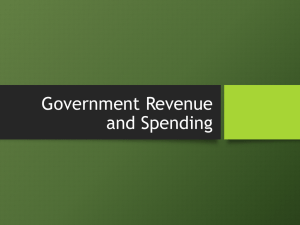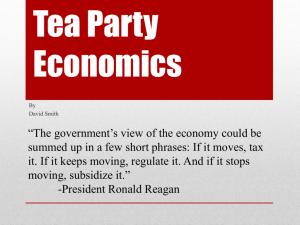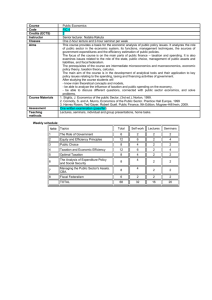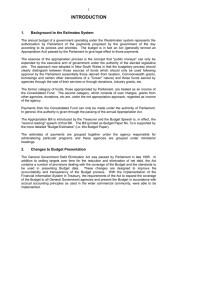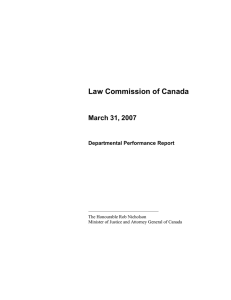Budget transparency: what role for parliament and civil society?
advertisement
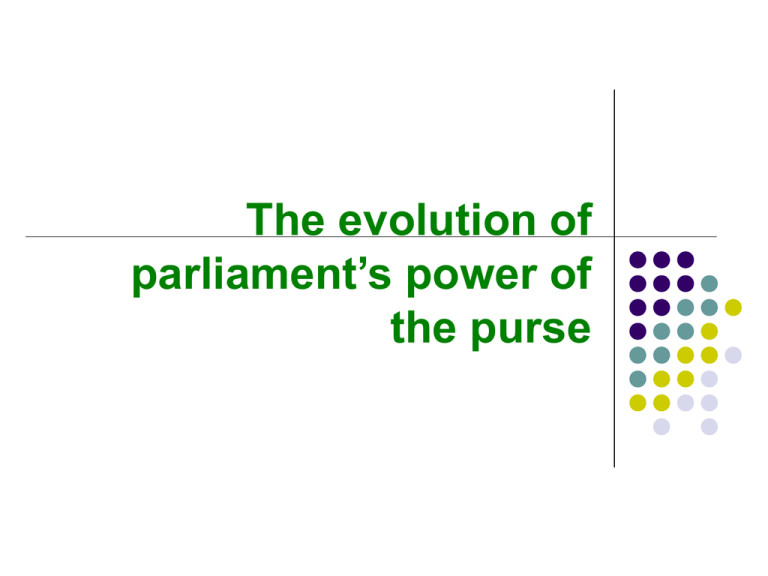
The evolution of parliament’s power of the purse Overview Parliamentary control of taxation The rise of modern budgeting More recent developments Control of taxation 1: Medieval England’s Parliament Guards against despotic royal rule. Limit kings’ powers to impose taxes Limit standing army beyond times of war. 1689 Bill of Rights established principle that only Parliament could authorize taxation: ‘… levying money for or to the use of the Crown by pretence of prerogative, without grant of Parliament … is illegal.’ No annual budget, no control of expenditures. Control of taxation 2 Parliament did not volunteer money to the Crown. Resolved in 1706 ‘That this House will receive no Petition for any sum of Money relating to public Service, but what is recommended from the Crown.’ This ‘financial initiative’ of the Crown has been enshrined in the Standing Orders of the Commons since 1713. This limitation is considered an essential constitutional principle to this day in many countries. The rise of modern budgeting 1 Parliamentary control is incomplete as long as governments were discrete public spending. Requests for funds could not be properly evaluated, without knowing needs. Beginning of 19th Century, the US Congress used detailed line item appropriations prescribing exact use of authorized funds. France was first in modern European spending control mechanisms (1830s). In UK, the Gladstonian Reforms in the 1860s introduced annual and comprehensive estimates. UK and French systems provided influential blueprints for budgeting. The rise of modern budgeting 2 Spending control achieved through detailed appropriations, i.e. legal authority granted to executive to spend public funds. The nature and detail of appropriation legislation varies. Some countries, many appropriation laws passed each year. Other countries have a single appropriation act. Legislation typically provides spending authority for a single fiscal year. Supplemental or adjustment appropriations can be granted if additional funds are required. More recent developments 1 Developments reduce budgetary activism of parliaments in OECD countries, in particular: Emergence of disciplined political parties led to cohesive voting behavior, and more executive control. Expansion of entitlement spending, e.g. social security, made budgets more rigid, and more difficult to amend. Growth of public spending means that the executive budget proposal became the standard for legislative action. Initiatives in OECD countries reinvigorate legislative control France National Assembly recently passed budget reform legislation requiring better information and growing Parliamentary powers to shift money between programs. More recent developments 2 Trend in non-OECD countries less clear. Democratisation and constitutional reform can open previously closed systems. International financial institutions and donors supportive of legislative budget involvement. Participation of legislature & accountability linked to debate on budget transparency. Concluding remarks Historically, struggle for parliaments in Western Europe was for a say in taxation. Expenditure control followed later, through use of modern budgets and appropriations. Now renewed appreciation for parliamentary scrutiny of public finances as a tool in making governments more accountable and effective.



